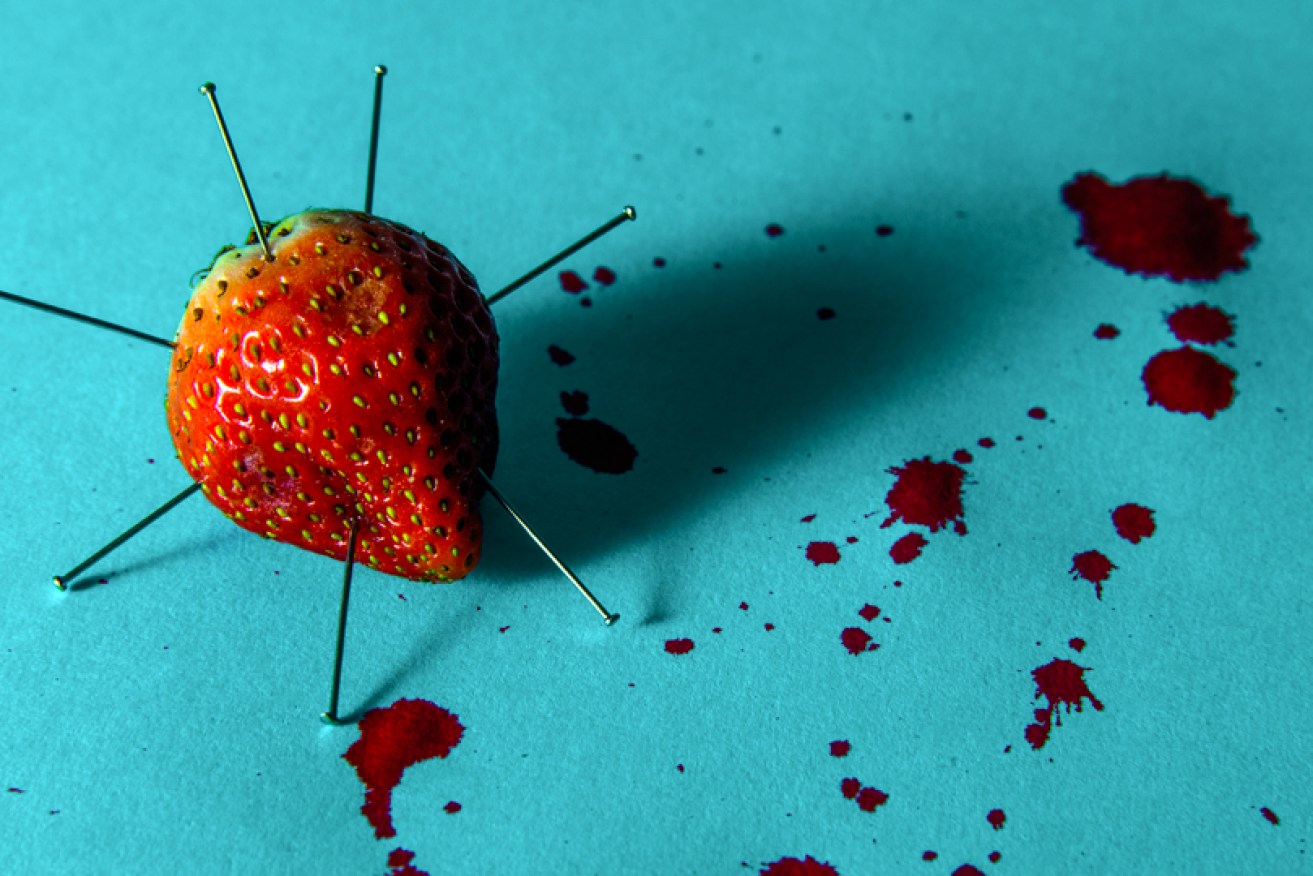Who is the strawberry saboteur? Inside an ‘egocentric’ mind


Whoever is putting needles in fruit resembles an arsonist, experts say. Photo: Getty
Is it a disgruntled ex-employee; a member of an organised crime syndicate; a political protester, an extortionist looking for a pay off – or someone with an as-yet unknown motive?
Whoever they are, they’ll be getting a kick out of the attention stirred up by their crime according to South Australian forensic psychologist Dr Jack White.
“They would definitely be getting a thrill from the attention,” Dr White said.
“Why else would they do it?”
Dr White, who runs a private practice in Adelaide, said food saboteurs could be likened to arsonists.
“They’re similar sorts of offenders,” he said.
“They get maximum chaos with minimal effort and small perceived risk.”
He said the person responsible for putting needles in strawberries was likely to be of below-average intelligence.
“It’s not a very sophisticated crime; it doesn’t require much planning.”

One of the alleged needle incidents. Photo: AAP
The perpetrator was also likely to have a high degree of hostility, low interpersonal skills, be egocentric, and have a tendency toward impulsive behaviour and risk taking. They would carry a sense of resentment toward the world.
“They probably think society owes them something; this is a crime against society,” Dr White said.
Dr Claire Ferguson, a criminologist and lecturer from the Queensland University of Technology said there’s a chance the saboteur could be someone who just wanted to hurt people.
“But we don’t see that sort of criminality often,” she said.
“It’s more likely they haven’t thought through or deliberated the crime very well or they wouldn’t do it,” Dr Ferguson said.
Dr Michelle Noon, a criminologist and psychologist at Melbourne’s RMIT University, believes the offender’s identity, once revealed, is likely to be a surprise to everyone.
“It’s such a rare crime that it’s difficult to research, and therefore difficult to make predictions about who could be responsible,” Dr Noon said.
“It could be a man or woman, young or old. I just don’t know.”
Dr White said the person responsible would be enjoying a sense of empowerment as they watch the reaction to their crime. “They’ll also enjoy showing off this power to others,” he said.
“They probably chose strawberries because they’re easily accessible and very popular.”
Manhunt and copycats
Around the country hundreds of police and state health department employees are scrambling to find the saboteur.
“It’s a phenomenally difficult task,” a Queensland Police Service spokesperson said.
And copycats and attention-seekers making false claims are making the investigator’s job even harder.
“We can’t just put it down to people crying wolf,” the QPS spokesperson said. “Every report has to be investigated thoroughly.”
Despite more than 100 fruit-tampering reports nationwide since the contamination crisis began two weeks ago, police say only a small amount have been found to be credible.
QPS deputy commissioner Steve Gollschewski urged the offender and a number of copycats to “stop playing with people’s lives”.
Dr Noon said copycats are usually people who were already on the brink of a criminal act.
“Seeing the strawberry tampering in the news has likely provided them the idea of what to do,” she said.
“I don’t think we’d be seeing people who’d never committed a crime, or who weren’t already exhibiting some anti-social behaviour, to be involved in this copying.”
Dr Ferguson said people copy criminal acts for “the thrill of it, or to gain notoriety from their dysfunctional peer group”.
Already several young people have admitted mimicking the crime, a Queensland woman has received a police warning after fabricating a report of fruit tampering, and an Adelaide man has been charged with making false claims of strawberry contamination.
And police will continue to take a hard line with copycats.
“We will take action against anybody providing false claims or pranking, including children,” deputy commissioner Gollschewski said.
“I’m urging all parents to talk to their children about the severity of making false claims, or sticking needles in fruit as a hoax – you’re messing with the industry’s livelihood and wasting police resources,” he said.
In Queensland a $100,000 reward is being offered for information that leads to the arrest and conviction of the person responsible.








